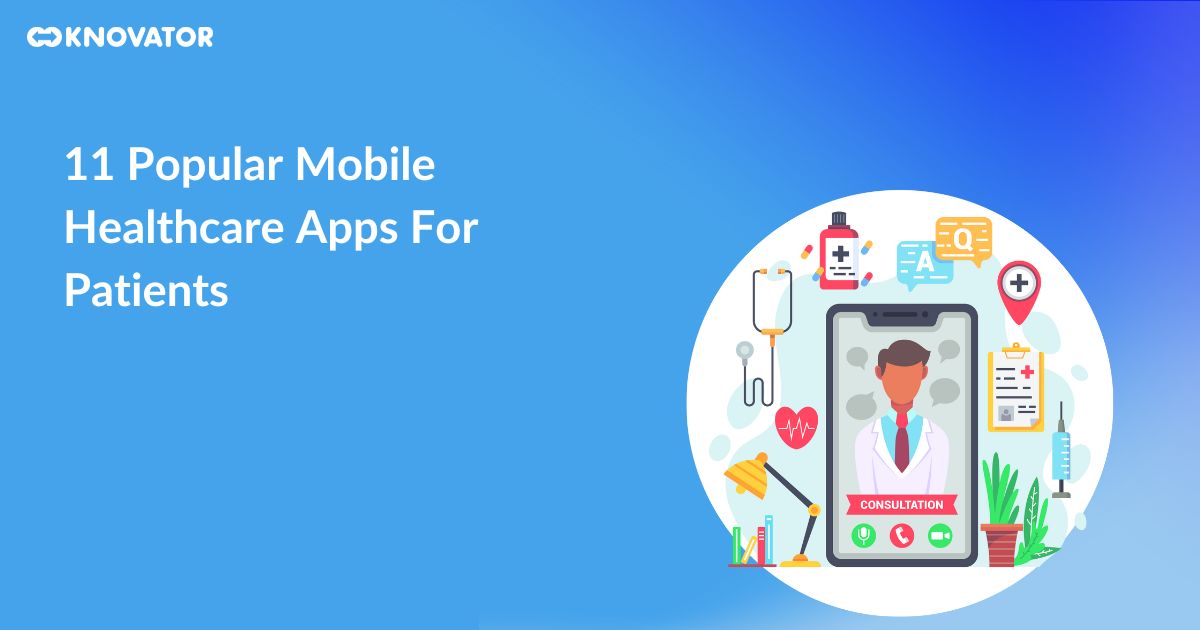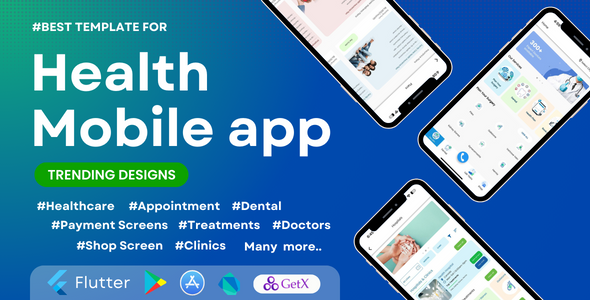The Future of Medical Care: Why Clinics Required a Mobile Application Today
As the medical care landscape continues to evolve, facilities face installing stress to adapt to patient assumptions for greater convenience and access. The assimilation of mobile applications can offer as an important approach for enhancing patient interaction and enhancing operations.
Changing Patient Assumptions
As the landscape of medical care advances, individual assumptions are undergoing a significant transformation. Today's people are significantly looking for benefit, ease of access, and personalized treatment. With the increase of technology, specifically mobile applications, people now expect a smooth combination of healthcare services right into their every day lives. They desire the capacity to manage visits, access clinical records, and connect with health care service providers via their smartphones, mirroring a shift towards a much more proactive method to health and wellness management.
In addition, clients are ending up being more notified and equipped, often investigating problems and therapies on the internet before appointments. This heightened understanding is paired with a need for transparency in healthcare processes, consisting of price estimates and therapy alternatives. Consequently, carriers are urged to adapt by adopting digital tools that improve the person experience.
The assumption for timely and efficient interaction has actually never ever been greater, with lots of clients considering responsiveness a critical part of high quality treatment. mobile app for clinics. In this evolving landscape, health care organizations have to acknowledge these changing assumptions and leverage mobile applications to foster a more patient-centric strategy, making sure that they not just meet yet go beyond the standards established by today's enlightened consumers
Enhancing Individual Interaction

Mobile applications help with communication between clients and doctor, enabling real-time consultation organizing, reminders for medication adherence, and straight messaging functions. These functionalities not just boost benefit yet additionally develop a sense of accountability amongst clients. Additionally, mobile apps can supply instructional material tailored to individual requirements, assisting clients better comprehend their conditions and therapy options.
The integration of gamification components within healthcare applications can likewise encourage patients to involve in healthy habits, reinforcing favorable lifestyle modifications. By tracking progress and fulfilling achievements, people are much more most likely to stay devoted to their health and wellness goals. Ultimately, improving person involvement through mobile applications leads to enhanced wellness outcomes, better patient satisfaction, and a much more joint healthcare experience. Centers that prioritize this facet will likely see a considerable influence on the top quality of care provided.
Simplifying Center Workflow
Improving center procedures is essential for enhancing process effectiveness and optimizing person treatment. The implementation of mobile applications can considerably reduce management worries, permitting health care service providers to focus a lot more on patient communications. By automating consultation organizing, individual check-ins, and payment processes, clinics can minimize wait times and improve total operational efficiency.
Mobile apps additionally facilitate real-time access to client records, making it possible for healthcare specialists to make educated decisions rapidly. This immediacy not just boosts the quality of care but also minimizes the probability of mistakes connected with misplaced or dated info. In addition, leveraging mobile technology supports a more organized strategy to taking care of individual follow-ups and treatment plans, guaranteeing that no vital steps are ignored.
Additionally, mobile applications can improve stock monitoring by giving clinics with tools to check materials and medications effectively. This permits timely replenishment and helps prevent disruptions in patient treatment because of stock scarcities. By integrating these functionalities right into their daily operations, centers can create a more natural and effective setting, eventually resulting in boosted individual results and complete satisfaction. Welcoming mobile modern technology is not just a fad; it is a needed evolution in the medical care landscape.
Improving Interaction Channels
Efficient interaction is frequently pointed out as a cornerstone of high quality medical care delivery. In today's hectic clinical environment, mobile applications can substantially boost communication channels in between facilities, clients, and health care companies. By incorporating mobile applications into their operations, centers can promote real-time communications, guaranteeing that individuals obtain prompt information regarding their visits, examination outcomes, and therapy strategies.
Mobile apps also equip individuals to interact straight with their medical care groups through secure messaging functions. This straight line of interaction cultivates a sense of engagement and enables instant information of worries, which can bring about far better adherence to therapy protocols. Moreover, push notices can remind patients of upcoming appointments or medication schedules, reducing no-show rates and boosting total wellness end results.

Remaining Competitive in Medical Care
In a quickly advancing find more info healthcare landscape, companies must prioritize advancement and adaptability to preserve an affordable side. The integration of mobile applications right into medical care services is no longer optional; it is crucial for clinics intending to boost patient involvement, improve operations, and boost total service delivery.
As individuals significantly count on digital platforms for health and wellness monitoring, facilities that fall short to adopt mobile technology danger falling back. A properly designed mobile application can supply attributes such as appointment scheduling, telemedicine assessments, and access to medical records, supplying individuals with comfort and cultivating commitment.

Competitors are additionally purchasing mobile solutions, so remaining ahead calls for constant renovation and staying informed regarding technological improvements. Clinics have to not only apply mobile applications however additionally take part in normal updates and refinements. Inevitably, the successful assimilation of mobile technology will certainly distinguish forward-thinking health care companies and set the standard for patient-centric care in a digital globe.
Conclusion
In final thought, the combination of mobile applications in facilities is vital to address the anchor evolving landscape of patient expectations. Ultimately, the strategic implementation of mobile applications stands for a critical action towards providing easily accessible and customized health care, thus meeting the demands of today's equipped clients.
Ultimately, enhancing patient involvement via mobile applications leads to enhanced health and wellness outcomes, greater person contentment, and a much more collaborative medical care experience.Mobile applications also facilitate real-time accessibility to client documents, making it possible for health care specialists to make educated decisions rapidly. In today's hectic clinical atmosphere, mobile applications can considerably boost interaction channels in between clinics, individuals, and healthcare providers.Mobile applications also encourage clients to connect directly with their medical care teams with secure messaging attributes. Ultimately, the calculated implementation of mobile applications represents an important step towards delivering obtainable and customized medical care, thus meeting the needs of today's equipped people.